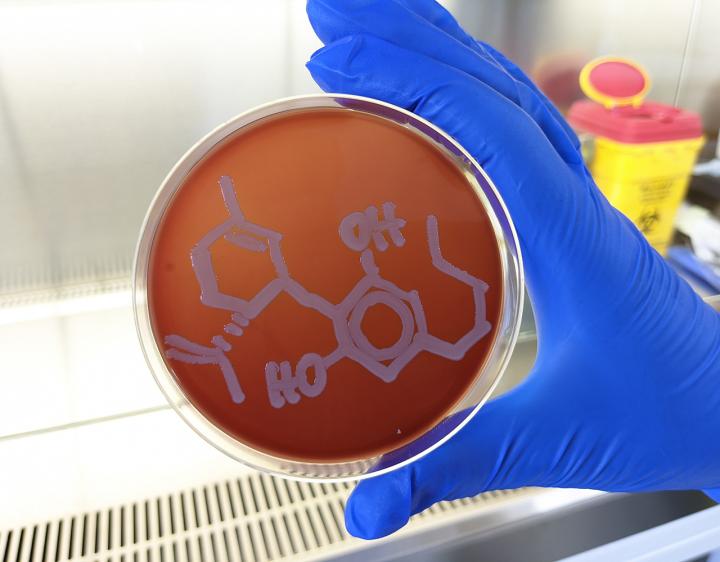Cannabidiol (CBD), the main nonpsychoactive ingredient of the cannabis plant, can kill Gram-positive bacteria and, more impressively, Gram-negative bacteria, which excel at antibiotic resistance because they enjoy an extra layer of protection, an outer cell membrane. The ability of CBD to slay Gram-negative bacteria is a new finding, one reported by a team of scientists in Australia. According to the scientists, CBD analogs could constitute the first new class of antibiotics against Gram-negative bacteria that has been developed since the 1960s.
The new finding appeared in the journal Communications Biology, in an article titled, “The antimicrobial potential of cannabidiol.” According to this article, CBD not only killed Gram-positive bacteria such as highly resistant Staphylococcus aureus, Streptococcus pneumoniae, and Clostridioides difficile, it also showed potency against the Gram-negative bacteria Neisseria gonorrhoeae, Neisseria meningitides, Moraxella catarrhalis, and Legionella pneumophila. These Gram-negative bacteria are responsible for sexually transmitted gonorrhea, life-threatening meningitis, airway infections (such as bronchitis and pneumonia), and Legionnaires’ disease, respectively.
“Our results demonstrate that cannabidiol has excellent activity against biofilms, little propensity to induce resistance, and topical in vivo efficacy,” the authors of the article wrote. “Multiple mode-of-action studies point to membrane disruption as cannabidiol’s primary mechanism.”
The authors included scientists from the University of Queensland and Botanix Pharmaceuticals. At the University of Queensland’s Centre for Superbug Solutions, scientists led by associate professor Mark Blaskovich, PhD, mimicked a two-week patient treatment in laboratory models to see how fast the bacteria mutated to try to outwit CBD’s killing power.
“Cannabidiol showed a low tendency to cause resistance in bacteria even when we sped up potential development by increasing concentrations of the antibiotic during ‘treatment,’” said Blaskovich, the corresponding author of the article in Communications Biology. “We think that cannabidiol kills bacteria by bursting their outer cell membranes, but we don’t know yet exactly how it does that, and we need to do further research.”
The research team acknowledged that the Achilles heel for further advancement of CBD as an effective therapeutic antibiotic is its lack of systemic activity. However, the team also suggested that there is reason to hope that chemical analogs of CBD could be used systemically to treat infections.
“Our initial structure-activity relationship (SAR) investigations provide evidence of the potential to alter CBD’s core structure while retaining activity, giving hope that the physicochemical properties can be modified to provide systemic activity,” the article’s authors reported. “Notably, variations were seen in the SAR against MRSA [methicillin-resistant S. aureus] and N. gonorrhoeae, meaning there is potential to develop a N. gonorrhoeae targeting agent that is not only selective over other Gram-negative bacteria, but also over Gram-positive bacteria.”
The new findings prompted optimistic words from Vince Ippolito, president and executive chairman of Botanix. “The published data clearly establishes the potential of synthetic CBD antimicrobials,” he said. “Our company is now primed to commercialize viable antimicrobial treatments, which we hope will reach more patients in the near future. This is a major breakthrough that the world needs now.”
Blaskovich said collaborating with Botanix has sped up the research, with Botanix contributing formulation expertise that has led to the discovery that how cannabidiol is delivered makes a huge difference in its effectiveness at killing bacteria. The collaboration has enabled Botanix to progress a topical CBD formulation into clinical trials for decolonization of MRSA before surgery.
“Those Phase IIa clinical results are expected early this year,” said Blaskovich. “We hope that this will pave the way forward for treatments for gonorrhea, meningitis, and Legionnaires’ disease. Now we have established that cannabidiol is effective against these Gram-negative bacteria, we are looking at its mode of action, improving its activity, and finding other similar molecules to open up the way for a new class of antibiotics.”


